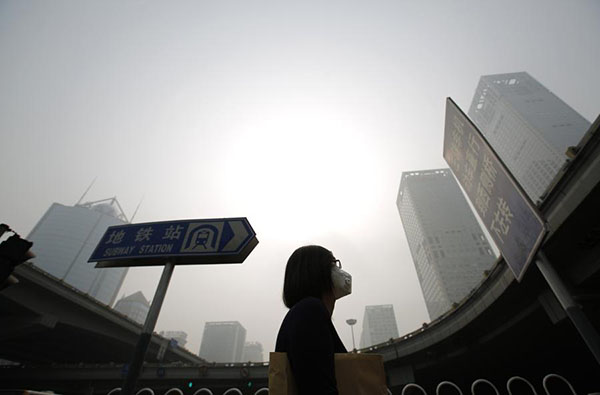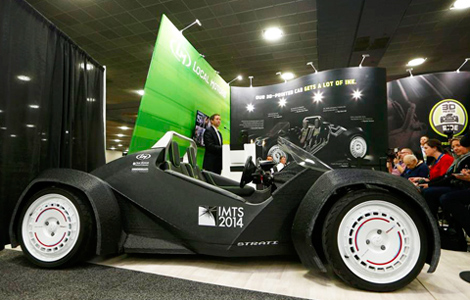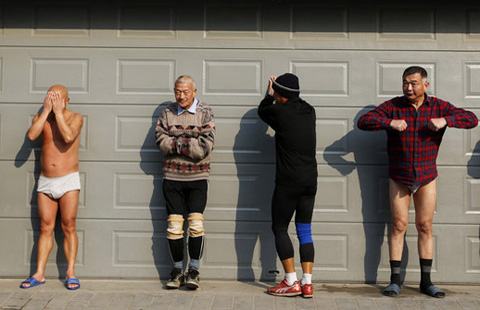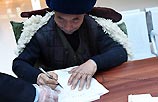Annual pollution control targets met: environment ministry
Updated: 2015-01-15 20:24
(xinhua)
|
|||||||||
 |
|
A woman wearing a mask makes her way on a street amid heavy haze and smog in Beijing, in this October 11, 2014 file photo. [Photo/Agencies] |
BEIJING -- The Chinese government met several air and water pollution control targets for 2014, said the Ministry of Environmental Protection on Thursday.
In 2014, about 7 million vehicles were banned from the road nationwide because they failed to meet exhaust emission standards, said Minister of Environmental Protection Zhou Shengxian at the annual meeting of chiefs of environment departments across the country.
About 50,000 coal-fueled furnaces were shut down. Denitrification devices were installed in coal-fueled power generators with total capacity of 190 million kw. Desulfurization devices for coal-fueled power generators were upgraded, with a total capacity of 95.76 million kw.
Steel and cement plants also underwent large-scale denitrification and desulfurization renovations.
The measures will greatly contribute to air pollution control, Zhou said.
Last year, the country also built new sewage processing plants with a total capacity of 9 million tonnes.
"We have fulfilled the annual targets set by the 2014 government work report," Zhou said, referring to a report submitted by Premier Li Keqiang to the national legislature in March.
This year, the government will work to ban all vehicles nationwide that were registered before the end of 2005 and fail to reach exhaust emission standards, Zhou said.
All vehicles that fail to meet emissions standards, regardless of their registration date, will be banned in the three highly polluted industrial regions of Beijing-Tianjin-Hebei, the Yangtze River Delta and the Pearl River Delta.
The government will continue to offer preferential policies for power plants that adopt denitrification and desulfurization renovations, Zhou said.
The dense smog that chokes China's big cities and industrial areas, including the country's capital, Beijing, is believed to result from excessive use of fossil fuels and vehicle exhaust.
The National Development and Reform Commission (NDRC),China's top economic planning body, said Wednesday that Beijing, Tianjin and cities in Hebei will reduce their coal consumption in 2017 by 63 million tonnes from 2012 levels.
The reduction will include elimination of outdated production capacity and use of cleaner energy such as hydro, nuclear, wind and solar.

 Mental illness no handicap to Nanjing artists
Mental illness no handicap to Nanjing artists
 Kashgar's diversity of cultures
Kashgar's diversity of cultures
 Best wedding snaps in 2014
Best wedding snaps in 2014
 Fancy sportscars premiere at Detroit auto show
Fancy sportscars premiere at Detroit auto show
 Looking hot in the cold
Looking hot in the cold
 Beijing sees first winter snow amid heavy smog
Beijing sees first winter snow amid heavy smog
 Elderly swimmers see health benefits in freezing water
Elderly swimmers see health benefits in freezing water
 Girl uses nose to run online store
Girl uses nose to run online store
Most Viewed
Editor's Picks

|

|

|

|

|

|
Today's Top News
Chinese tourists boost travel to Los Angeles
Turkey to help in foiling suspects from Xinjiang
Japan unveils record defense budget
HK halts investment program
China unifies pension system
Lingerie not focus of Victoria's Secret in China
China's ban on US chicken could cost millions
SelectUSA round 2 gears up
US Weekly

|

|








